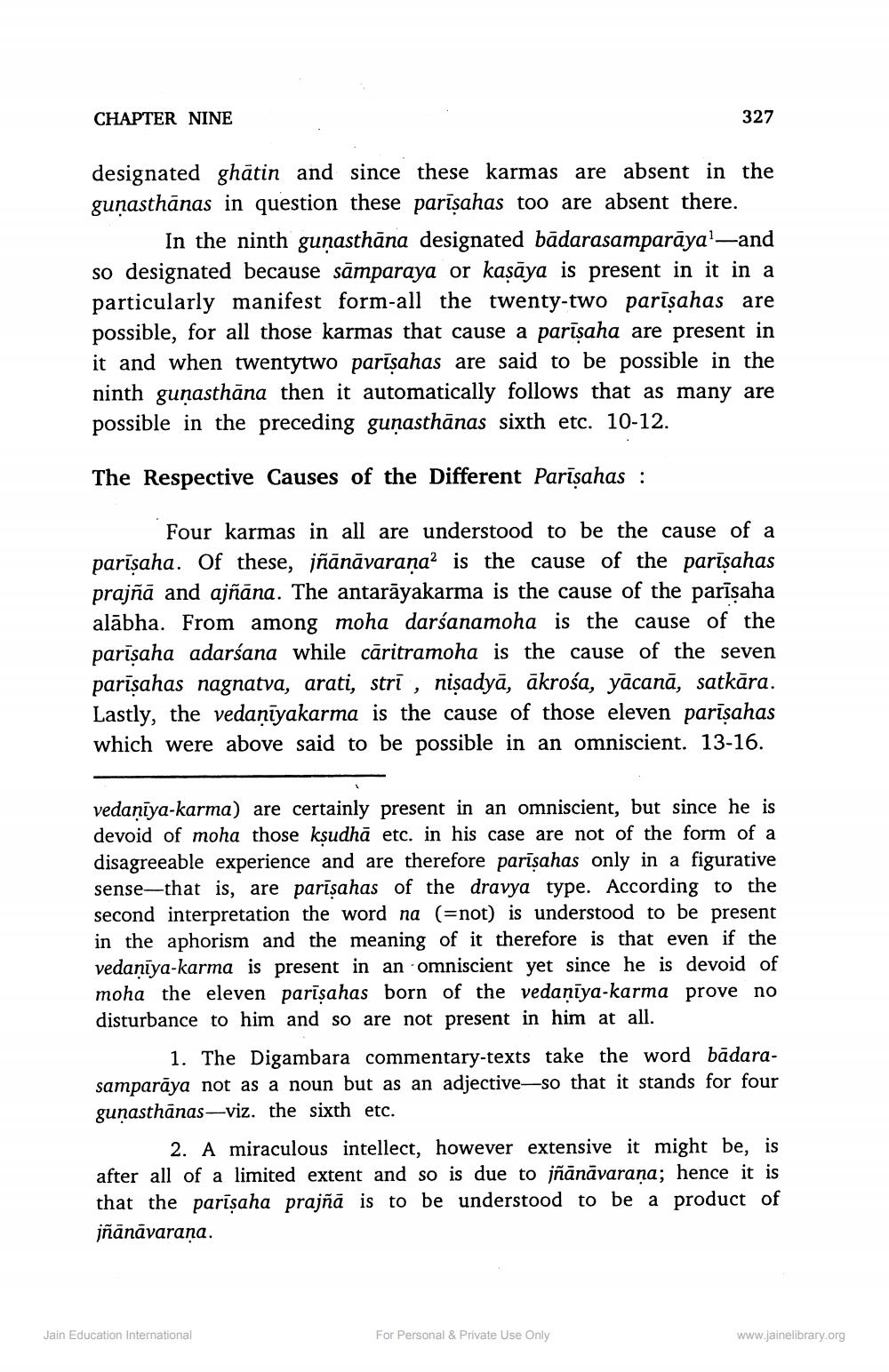________________
CHAPTER NINE
designated ghatin and since these karmas are absent in the guṇasthānas in question these parīṣahas too are absent there.
327
In the ninth guṇasthāna designated bādarasamparāya1—and so designated because sämparaya or kaṣāya is present in it in a particularly manifest form-all the twenty-two parīṣahas are possible, for all those karmas that cause a parīṣaha are present in it and when twentytwo parīṣahas are said to be possible in the ninth guṇasthāna then it automatically follows that as many are possible in the preceding gunasthānas sixth etc. 10-12.
The Respective Causes of the Different Parīṣahas:
Four karmas in all are understood to be the cause of a parīṣaha. Of these, jñānāvaraṇa2 is the cause of the pariṣahas prajñā and ajñāna. The antarāyakarma is the cause of the parīṣaha alabha. From among moha darśanamoha is the cause of the parīṣaha adarśana while căritramoha is the cause of the seven parīṣahas nagnatva, arati, strī, niṣadyā, ākrośa, yācanā, satkāra. Lastly, the vedaṇīyakarma is the cause of those eleven parīṣahas which were above said to be possible in an omniscient. 13-16.
vedaniya-karma) are certainly present in an omniscient, but since he is devoid of moha those kṣudhã etc. in his case are not of the form of a disagreeable experience and are therefore parīṣahas only in a figurative sense that is, are parīṣahas of the dravya type. According to the second interpretation the word na (=not) is understood to be present in the aphorism and the meaning of it therefore is that even if the vedaniya-karma is present in an omniscient yet since he is devoid of moha the eleven parīṣahas born of the vedaniya-karma prove no disturbance to him and so are not present in him at all.
1. The Digambara commentary-texts take the word badarasamparāya not as a noun but as an adjective-so that it stands for four gunasthānas-viz. the sixth etc.
2. A miraculous intellect, however extensive it might be, is after all of a limited extent and so is due to jñānāvarana; hence it is that the parisaha prajñā is to be understood to be a product of jñānāvaraṇa.
Jain Education International
For Personal & Private Use Only
www.jainelibrary.org




